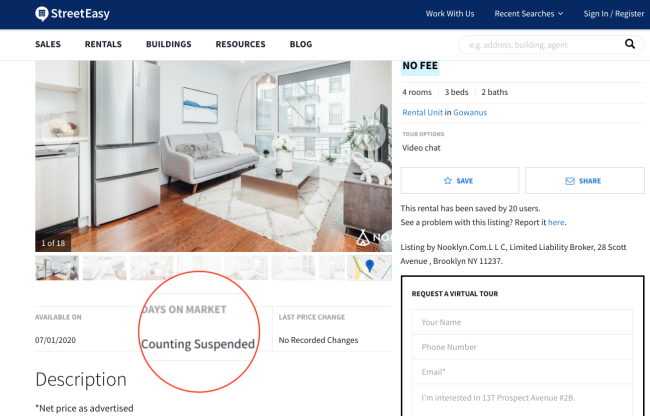Inaccurate listings, violations of the Fair Housing Act may result in big fines for NYC brokers

New fines for brokers can run as high as $20,000 per sales listing and $3,200 per rental listing for violations such as an incorrect closing price, commission type, or listing status.
iStock
Hefty fines for missing or inaccurate listing information may mean fewer buyers and renters will get tripped up by bad comps or chase apartments no longer on the market.
The Real Estate Board of New York, the city’s main real estate trade association, says it will begin to issue fines for data violations in its Residential Listing Service database starting September 15th. Fines can run as high as $20,000 per sales listing and $3,200 per rental listing for violations such as an incorrect closing price, commission type, or listing status. Other penalties will be issued for failing to abide by the Fair Housing Act.
Having accurate comparable deals is important for buyers and renters to make educated bidding decisions. For example, when agents provide comparable sales for the same neighborhood, price, or size range—if data is missing or incorrect, the comps may be wrong, and the buyer may bid more than they would otherwise.
In addition, the initiative looks to make a listing status accurate and prevent agents from advertising properties that are no longer on the market. Sometimes this is done to collect info from interested buyers or renters and send them other listings in the future.
The RLS feeds partner sites like realtor.com, renthop, The New York Times, and homes.com—and must comply with New York State advertising law and the FHA. The RLS has an average of more than 17,000 active listings from more than 600 real estate firms and property owners, representing a total of $29 billion worth of residential real estate in NYC, according to REBNY.
“We are committed to consumer transparency and…enforcing accurate listing data that New Yorkers, brokers, and owners rely upon is our number one priority,” says John Canniffe, head of the REBNY’s RLS. He says the RLS has not tracked a single FHA violation in more than a year.
If you see listing information that doesn’t appear accurate, a REBNY spokesperson says to reach out the website where you found the listing.
REBNY introduced the compliance measures and fines in 2019 with a one-year grace period. It has spent a year on educating its network and is also doing quarterly reviews of its partner brokerage firms. If more than 5 percent of agents in a firm are in violation, the firm will also incur a fine up to $10,000. Firms fined more than three times in a year may be suspended from the RLS for 30 days.
According to The Real Deal, REBNY began scrutinizing its data starting in 2018 reportedly after criticism from real estate firms that the association wasn’t doing enough to enforce industry rules.
Racial discrimination in the real estate industry has come under intense focus recently, thanks to a bombshell investigation by Newsday last year, which found almost half of all Black homebuyers and renters on Long Island are likely to face bias from agents. In response to that investigation, State Senator James Gaughran introduced a legislation that would revoke the license of any broker or agent who violated Human Rights law. The bill cleared the legislature last week and is awaiting Governor Andrew Cuomo’s signature.
You Might Also Like




























